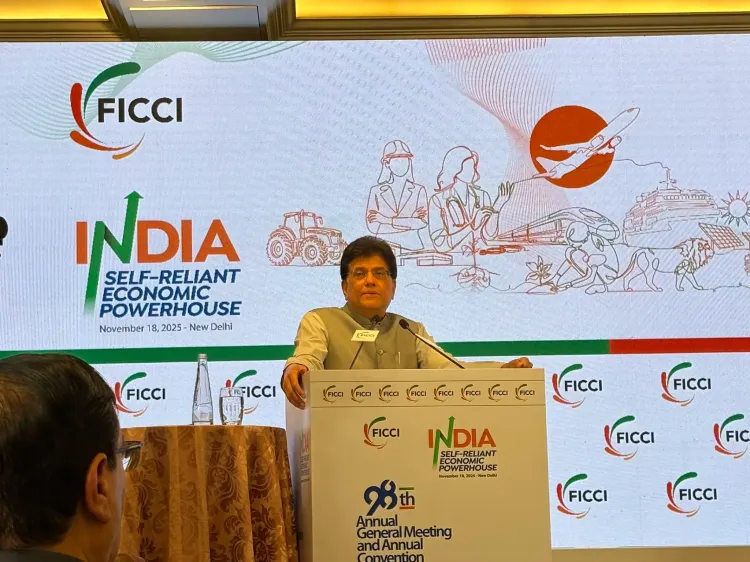Should Industry Set Bold Targets and Mentor Next-Gen Leaders?

Synopsis
Key Takeaways
- Set bold targets for future growth.
- Evaluate advocacy efforts to understand impact.
- Encourage domestic investment in startups and R&D.
- Learn from global models like Korea and Sweden.
- Engage the next generation in industry discussions.
- Expand outreach beyond major cities.
New Delhi, Nov 18 (NationPress) Union Commerce Minister Piyush Goyal on Tuesday called on industry leaders to embrace a more ambitious and proactive stance to propel India’s growth.
During his address at FICCI’s 98th Annual General Meeting and Annual Convention, he outlined five critical expectations from the industry and urged them to set audacious, future-oriented targets.
Goyal first requested industry bodies to thoroughly examine the results of their advocacy initiatives.
He remarked that industry associations often propose ideas and recommendations but seldom assess which ones gained traction and which were overlooked.
This evaluation, he pointed out, would enable them to grasp their genuine impact and fortify their role in the years to come.
"Establish bold targets. We cannot be content with gradual growth; we must step beyond the conventional. We require domestic capital, Indian investments in startups and R&D. It cannot always rely on foreign investment; during initial phases, domestic financing is essential. Adopt a bold perspective," Goyal articulated.
He further underscored the necessity for bolder ambitions, asserting that India cannot afford to settle for slow or incremental advancements.
Goyal advocated for enhanced domestic investments, especially in startups and research and development, emphasizing that early-stage enterprises should not solely depend on foreign funding.
The minister also encouraged Indian industry to draw lessons from global exemplars, particularly nations like Korea and Sweden, which boast robust frameworks for industrial development and business support.
Addressing the topic of leadership, Goyal expressed concern about the limited engagement of the next generation in policy and industry discussions.
In his concluding remarks, Goyal urged FICCI to broaden its outreach beyond major urban centers and into India’s remote areas. He emphasized that industry bodies should not limit themselves to elite business circles but should expand their engagement to foster growth across the nation.
He implored FICCI to become what he termed an “uncomfortable leader” that challenges itself and aids in steering India towards excellence.









